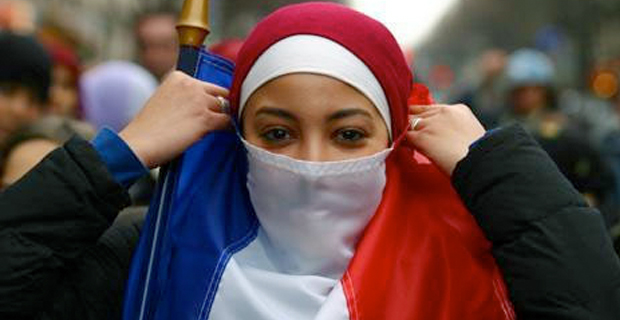The wearing of face-covering headgear, including masks, helmets, balaclava, niqābs, burqa (full-body covering) and other veils covering the face in public places (such as the street, shops, museums, public transportation, and parks) is illegal in France.
The French Senate put a ban on face covering 14 September 2010. The bill had previously been passed by the National Assembly of France on 13 July 2010.
She will be subjected to a fine and also must enroll in a “citizenship course". The French law does specify that men who force women to cover can be fined even more than women who choose to cover.
The critics of the ban say it is anti-Islamic.
Jacques Myard, a member of the French parliament who supports the ban, called the burqa a "shock" to French culture.
"The face is a dignity of a person. The face is your passport,". "So when you refuse me to see you, I am a victim.The law applies to all citizens and non-citizens, including men and non-Muslims, it does not exclude tourists.
French police say that while there are five million Muslims in France, fewer than 2,000 are thought to fully cover their faces with a veil.
France, which has Europe’s biggest Muslim population (estimated at five million), is not the only european country that prohibit women from wearing a burka, niqab or any other garb that covers the face. Italy, a Catholic country, also prohibit the burka. Belgium has banned the wearing of burka-style Islamic dress in public, as has a city in Spain.




Aucun commentaire:
Enregistrer un commentaire